The words were by Ruhul Amin, a boy the children from the “Out of Focus” group had written a story about, for the Junior Summit Magazine in their New Year issue in 2001. The “Out of Focus” group were no longer children, but young adults, and now my colleagues at Drik. The stories they have told me over the years continue to provide food for thought.
“Desh kothai?” is the most common question a new found Bangladeshi acquaintance will always ask you, unless they have been brought up abroad, or are yuppie urbanites. The question, ‘which land are you from’ is a way of placing you, determining your roots, establishing linkages, forming identity. While many Bangladeshis now live in cities, it is the ‘desh’ that they long for.
Come Eid, or any other of the many holidays we have, the cities become empty, and the rooftops of the outbound buses and launches are packed. Sadly, there are frequent accidents, and many deaths. But still they come to the city. In the hope for a job. In the belief that in the big city, things will change.
So it was that the streets of Dhaka city were quiet on election day. People had gone back to the villages, to their desh, to vote. Rahnuma’s brother Saif, was telling me of how they had to drive in voters in Richmond, in London, and they’d still end up with only 35% voting. Bangladesh’s enthusiasm for elections was exemplary. There was a good turnout all day, and while in every polling centre I visited, many complained about not having been able to vote, it was put down to faulty lists and inefficiency. There wasn’t the suggestion of foul play.
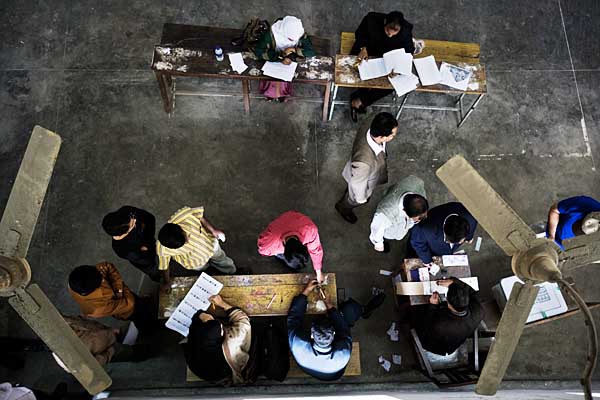
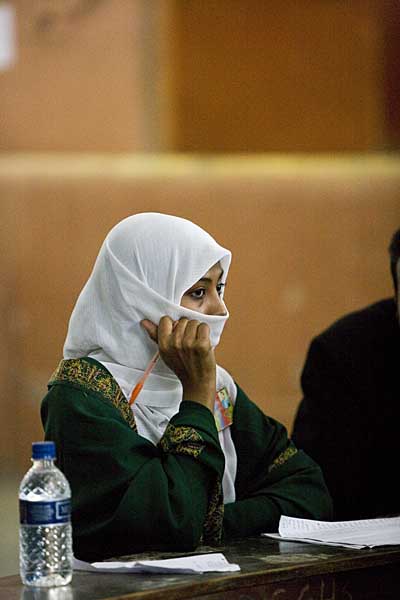
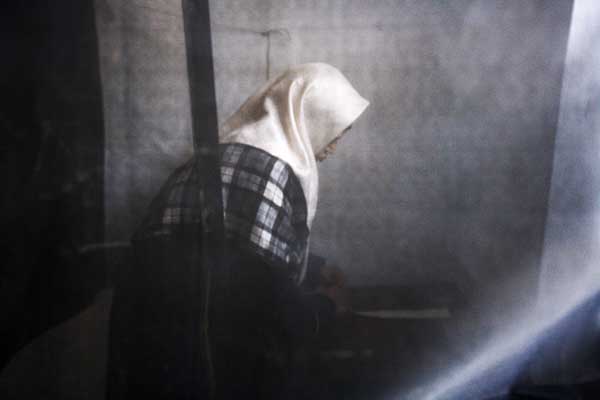
Election updates at Himal Magazine with photos from DrikNEW
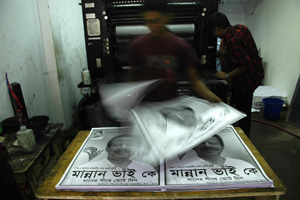
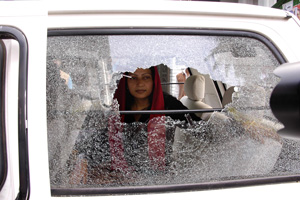
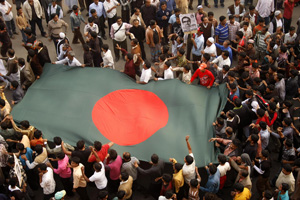
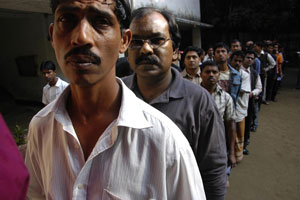
[wpvideo HHTnTaKC]
I met Dadon Mia, the beggar on the pedal chair who staked Satmajsid Road, at one of the polling booths. He didn’t have a fixed address, but his persistence had ensured he was included in the voter’s list. He had voted for the first time. A gentleman I had last seen in Malaysia, when I’d been doing a story on Bangladeshi migrant workers, remembered me. “Do you still cycle? he asked. Yes. “tahole ato mota kan?” (Why are you so fat then?). This Bangladeshi frankness might have been considered rude in other places. But here it was perfectly commonplace. It was with caring concern that he reminded me of my pot belly. The adviser Hossain Zillur Rahman smiled when we briefly met at Dhanmondi Girls School. I had been critical of Zillur in my writing, but on the occasions when we did meet, Zillur had always greeted me with a smile. There was no sign of violence, and apart from the irate, and sometimes tearful voters, who had been denied a vote because the list didn’t have their names, the polling seemed to go remarkably well.
As we stayed up all night, there was initial relief that the visibly corrupt, vote rigging BNP, had not come back to power (it would have given all the wrong signals), and then euphoria upon the knowledge that Jamaat had been routed. But as the enormity of the landslide victory for Awami League sank in, I remembered the? Sir Arthur C Clarke quote that my friend Nalaka Gunawardane often used. “Be careful what you wish for,” Sir Arthur would say, “it can come true.” I had voted for the Awami League. Not because I thought they would form a good government – there was ample evidence to suggest they were incapable of that – but because another five years of BNP misrule would have been intolerable. And since we certainly didn’t want military rule, the Awami League it had to be.
The initial rejection of the results by BNP sounded like the usual sour grapes. Why couldn’t they for once, lose gracefully? But then I started thinking of the excessively high turnout figures. We knew the military needed an Awami League win, but had they overdone it a bit? An Awami League majority was one thing, but could we survive an elected BAKSHAL? As media whispers (not published generally) began to talk of the unreported vendettas being played out across the country, of polling officers having been bought out, doubts began to enter my mind.
My earlier concerns of Jamaat returning to power, or Ershad becoming president again, paled when I considered the horror of an unbridled Awami League let loose on the Bangladeshi public. Sir Arthur had detested astrology, but he was rather good with his predictions. My wish had sadly turned true.
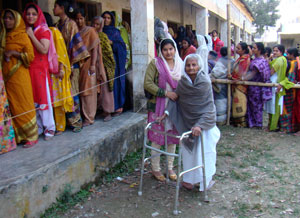
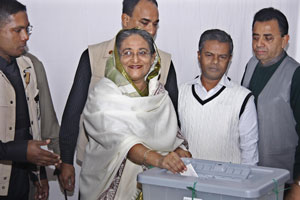
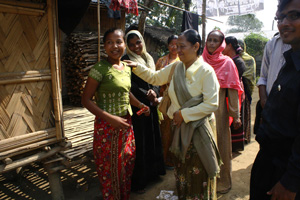
[wpvideo TMwf4413]
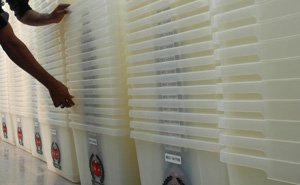
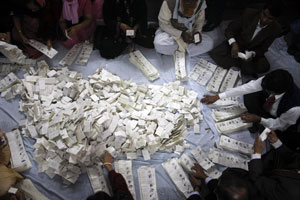
[wpvideo 1OBnctaG]
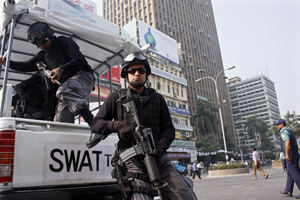
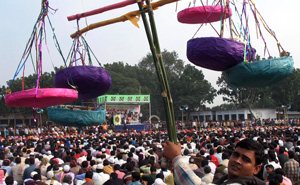
[wpvideo ejjBdh4C]
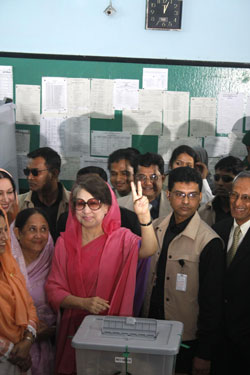

colourful, lively, beautiful and comprehensive reportage Shahid Bhai, thank you for sending me
We youngsters have heard a lot about BAKSHAL, but obviously haven’t got a chance to see it. Whether we survive it or not, this might be a ‘good chance’ for us to experience it!
After all, it was our dream to see a “Digital Bangladesh” that led to this.
Though I am also wondering how much will it be possible for an elected government to impose BAKSHAL in this age of globalization, when so many people are blogging-or at least reading a blog!
A big salute to your wonderful expression-in pictures and writing, and thanks a lot for sharing!
@Maimuna
No, we don’t want to take any ‘chance’ to see ‘BAKSHAL’ in our age. Yes this is true that ‘so many’ people are blogging or reading, but ‘HOW MANY’ ?
@Maimuna
Your wish to see another Bakshal seems like a wish to see a grave of our own. I wish you did not mean it..I do not wish to see many things I have not seen but heard of…and believe me when it is about exercise of power, we never know in advance that how much it would cost for digitalization and blogging to take over the atrocities. In fact, I just do not think that this blogging or digitalization can hold back the politics of the vicious circles. So may people are blogging about recent Israel bombings or look at the situation in Myanmar or in Zimbabwe…has anything been changed? has the realm of silence of the international community been broken even by a single pin drop? Not at all. Blogging and digitalization will perhaps ensure an awareness in a hopeless community but will not ensure a piece of bread to a starving child.
This was my face book note just before election I just have to echoed it again.
………………………………………………
(I believe in Democracy every one has a minimum space of liberty regarding expression of thought , others have the rights to agree or disagree with him , not the right to stop his voice )
LEAVE SOME SPACE FOR US .
Us ?
Who ?
We majority of Bangladeshi , those are not Jamat or rajakar or not certified freedom fighter . Rajakers are identified , Mukti jodda have their certificate . So other Bangladeshis are nothing ? they dont have any role in liberation ? I am one of those people or my my family neither recognized as rajakar or Muktijoddha . Then should not I have the rights to live in this country as other .
I am afraid both of them . If one kill people by shooting bullet others by beating by stick.I am sorry I cant find any difference between them .(before 1 11)
My conscious mind cant respect to the body of Bir shestro Matiur’s body buried while 14 other laborers body hanging in the ruin of Rangs Bhavan .
As per constitution or as per the ideologies of liberation war should some one get special privilege just being a relative of a freedom fighter rather than any one of the country man . Thats why I feel ashamed when see Muktijoddha X is begging . The shame is a milion people can beg not a mukti jodda . Are not this people become Freedom fighter to change the fate of the whole nation . Than why they cant accept the fate of general people .
If it is for their sacrifice in liberation war then why not those who are dying unarmed in border by BSF ever year .
Should I fear the rapist of 71 or those who raped a girl in front of her mother . then killing her going in hospital and police are not taking no case (Tangail Asru Bitunia a student of class 8 ) .I fear this man.
This is very much important for me to be clear before election .Should I vote the Mukti joddher Chetona group or anti .Should not I have a third choice .
By mentioning ‘great chance’I didn’t mean to wish for BAKSHAL. I sure do not want a ‘digital’ Bangladesh with no freedom of speech. I can never wish my beautiful country become a graveyard. I only wish whatever ‘digitalization’ is for the better.
And like the writer, I do have to Be careful what I wish for.
The GOOD news is our Bangladeshi election/democracy is not any better or worse than the election of a developed country. If we observe these results for a while they seem to have a trend and therefore if they are not predictable at least they are not shocking. I always believe leadership reflects the mass; not the other way around; therefore our leaders reflect our quality. And if we want to change the quality of our leadership we have to change our own quality.
I would not be able to say it more eloquently than Edward Abbey:
Anarchism is founded on the observation that since few men are wise enough to rule themselves, even fewer are wise enough to rule others.
Edward Abbey
One man alone can be pretty dumb sometimes, but for real bona fide stupidity, there ain’t nothin’ can beat teamwork.
Edward Abbey
Thanks